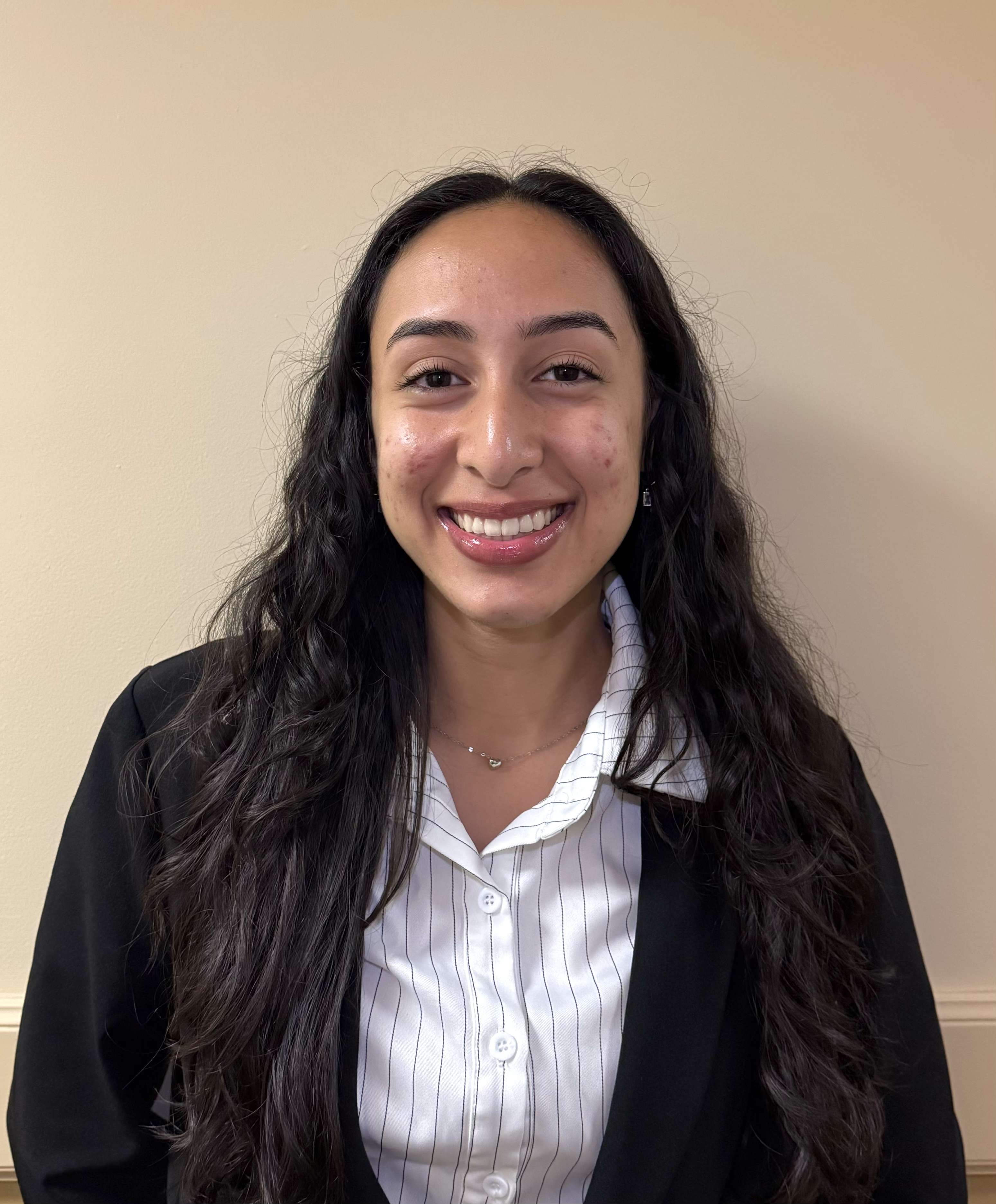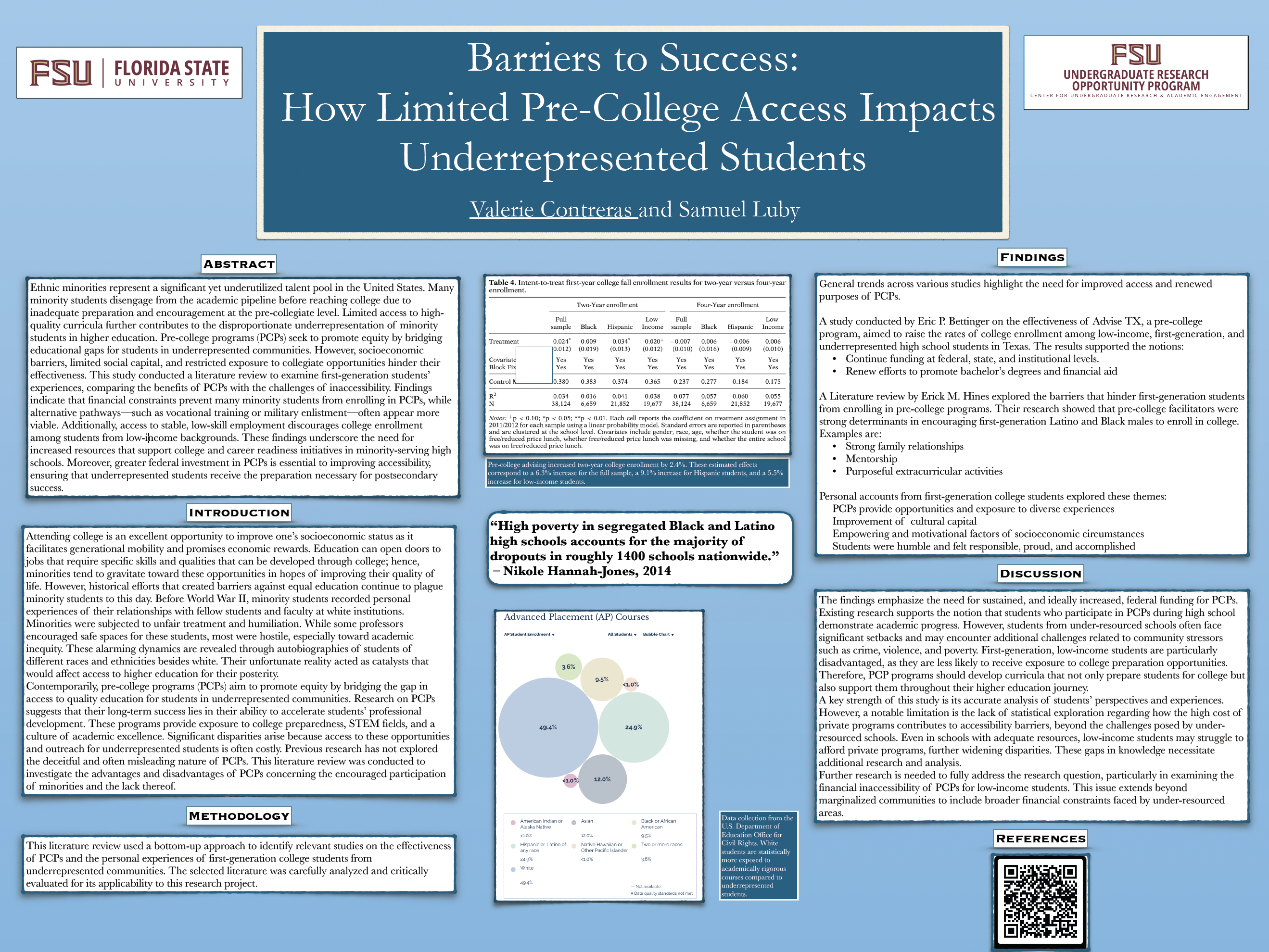Research Symposium
25th annual Undergraduate Research Symposium, April 1, 2025
Valerie Contreras Poster Session 3: 1:45 pm - 2:45 pm/ Poster #249

BIO
Born and rasied in Miami Florida, Valerie Contreras is a first-generation student and sophomore at Florida State University studying Political Science and Social Work. She is interested in social advoacay and human civil rights. At FSU thus far she has tested her leadership as a Student Senator, Juana Bordas Mentor, and Orientation Leader. Currently she is a proud Outreach Coordinator for the Central American Latinx Organization. In the future she is interested in working for a non-profit organization that empowers the voices of margianlized communities in Miami through civic education and community engagement. Outside of school she loves reading books, going to the gym, and eating lots of cookies. A fun fact about Valerie is that during her junior year of high school she spoke before the Miami Dade County Public Schools board about the importance of mental health with Power U Center for Social Change!
Barriers to Success: How Limited Pre-College Access Impacts Underrepresented Students
Authors: Valerie Contreras, Samuel LubyStudent Major: Political Science and Social Work
Mentor: Samuel Luby
Mentor's Department: Educational Leadership and Policy Studies Mentor's College: College of Education, Health, and Human Sciences Co-Presenters:
Abstract
Ethnic minorities represent a significant yet underutilized talent pool in the United States. Many minority students disengage from the academic pipeline before reaching college due to inadequate preparation and encouragement at the pre-collegiate level. Limited access to highquality
curricula further contributes to the disproportionate underrepresentation of minority students in higher education. Pre-college programs (PCPs) seek to promote equity by bridging educational gaps for students in underrepresented communities. However, socioeconomic barriers, limited social capital, and restricted exposure to collegiate opportunities hinder their effectiveness. This study conducted a literature review to examine first-generation students’ experiences, comparing the benefits of PCPs with the challenges of inaccessibility. Findings indicate that financial constraints prevent many minority students from enrolling in PCPs, while alternative pathways—such as vocational training or military enlistment—often appear more viable. Additionally, access to stable, low-skill employment discourages college enrollment among students from low-income backgrounds. These findings underscore the need for increased resources that support college and career readiness initiatives in minority-serving high
schools. Moreover, greater federal investment in PCPs is essential to improving accessibility, ensuring that underrepresented students receive the preparation necessary for postsecondary success.
Keywords: Pre-College Programs, Marginalized Communities, Higher Education

